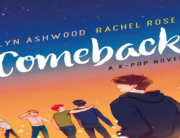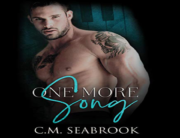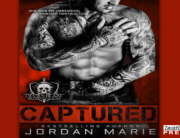The Anti-Hero
We are living in a time where escaping the confines of our home is what we want to do more than anything. Netflix, Disney+, Hulu, etc. can only provide so much entertainment. The plots become predictable, the characters lose their shine…yada, yada. You know the drill. My favorite stories, both on the screen and between the pages, are the ones following the “most loved”
character wrestle their moral high ground, and ultimately fail. These characters feel real. I feel like I know them, have met them in my day-to-day life. Truth is: I probably have and so have you. Instead of listing off characters you can base your own character off of, how about we talk about making your character unique to you?
- BACKSTORY IS VITAL
Backstory to characters who strive for the ultimate good makes sense. But what about the characters who are angry? Or who are evil? Do not forget one of the more important things in writing: evil can be created. Explore that. Whatever was done to this character can introduce so
many more things about them, such as personality traits, nervous ticks, complex behaviors, and beliefs. Your reader doesn’t need to know this information right away, too. Write it out on a new document on your computer and in your notebook before you begin your tale. Uncovering
the backstory as the story progresses is the best part about the antihero.
- ANGRY OR NOT; THE OUTCOME OF THEIR ACTIONS ARE…
Good! For them, at least. It’s a satisfaction for them to do the things they do, because they feel it’s right. They may hurt some people along the way, mentally or physically, but they have a goal in mind. This character could be ruthless. This is what sets them apart from your regular hero. It’s also what sets them apart from being a total villain. They don’t want good for everyone, they want good for them. Which, once their background seeps into the story, sympathy will be created for them by the reader (if they have heart, that is.)
- REDEEMING QUALITIES BUILD SYMPATHY
Okay, so what if the character in question likes to kill people. Simply because they like to do that doesn’t mean they don’t have a soft spot for Grandma or Grandpa who raised them through their chaotic upbringing. They’ll always make it home for dinner every night, so they don’t upset
them. See that? That’s a redeeming quality. Piling up the negative can be emotionally exhausting. Not everyone is as terrible as that. I can think of a few, but we won’t go there. Overall, if the character has a laundry list of negative qualities and zero good ones and they still win in the end, that’s going to be one upsetting story and you’re going to have a laundry list of
unhappy readers. Give them traits to make them likable. You’ll have your readers’ hearts in your hands.
- YOUR ANTIHERO IS HUMAN (OR CLOSE TO IT)
Point is, we are flawed. You and me. Your antihero should be too. Lean towards realism. They have their own moral code, their own inner conflict, and they will always face difficult decisions to meet their end goal. Don’t we all? That’s what makes us each unique in our own personal journey so why not give that to your antihero as well. We aren’t all terrible…right?
So, get to it! We’re done here. Nothing more, nothing less. Antiheroes are far more fun than regular heroes. It’s nice to see a good two-shoes every once in awhile, but I like characters who commit heinous acts (to a certain degree!) and have purpose to their wrongdoings. Who are some of your favorite antiheroes in the literary world? My all-time favorite will always be Dexter Morgan. Not because of Michael C. Hall’s adaptation (although, major plus, albeit), but because of Jeff Lindsay’s creation of him. A serial killer with conscience? Absolutely brilliant.
Happy Writing!








